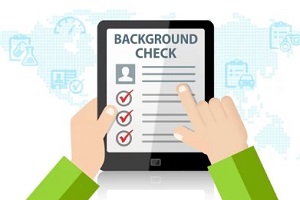Criminal records are commonly used by federal, state and local agencies to support criminal operations and confirm information when issuing background checks, employment screenings, firearm purchases and similar needs for both private and public organizations.
Computerized criminal history (CCH) systems are available in many states across the U.S. and are designed to increase public safety and reduce the prevalence of reoffenders. Learn more about computerized criminal history record management systems, what information they contain and how they can be of use to law enforcement.
What Is a CCH System?
Having access to accurate and timely criminal history record information (CHRI) is essential for a broad range of both criminal justice and non-criminal justice processes. The decisions made using the information found in these systems can dramatically impact the lives of residents across the country.
Gathering and managing criminal history data requires input from a variety of sources, including law enforcement agencies, supervisory agencies, state corrections institutions, courts, jails and prosecutors. CCH systems deliver technologically-advanced, updated criminal history information that can be custom configured and integrated with other law enforcement technologies.
CCH is considered an innovative and all-encompassing enterprise management system. It includes a suite of technical and business services designed to support events within the criminal justice system. With CCH systems, organizations can better meet key business objectives, such as increased timeliness.
What Data Is Included in CCH?
 Computerized criminal history systems provide a repository of criminal history data that is reported to local, state and/or federal criminal justice agencies. The CCH data included in these systems can vary from state to state; however, most systems include general criminal history information including arrest, prosecution and disposition records.
Computerized criminal history systems provide a repository of criminal history data that is reported to local, state and/or federal criminal justice agencies. The CCH data included in these systems can vary from state to state; however, most systems include general criminal history information including arrest, prosecution and disposition records.
These online databases of criminal offender information often provide authorized users with access to complete statewide criminal histories of criminal offenders. This information is then used by criminal justice officials to make important decisions with respect to sentencing, bail, parole and probation.
Many states manage computerized criminal history systems that contain expansive fingerprint repositories. Having access to offender fingerprints can prove invaluable during criminal investigations. Automated fingerprint identification systems are often integrated with mugshot and CCH information.
Computerized criminal history systems can also include other critical data collected by law enforcement, such as information related to misdemeanor and felony offenses. This data may be used by criminal justice agencies when making decisions regarding criminal investigations, criminal charges, bail/bond, convictions, plea bargains, probation, arrests and placement in correctional facilities.
Who Must Report Data to CCH?
Laws and regulations for reporting data to computerized criminal history systems can differ from state to state. However, most criminal justice and law enforcement organizations are obligated to provide this information. Sheriff’s offices, police departments and other criminal justice agencies that arrest a person are generally required to report the event within a specific number of days.
Reports must include specific information, such as an incident tracking number, the fingerprints and personal data about the offender. Arrest data is generally entered into the agency’s own automated booking system and then sent via an electronic message to the appropriate CCH system for immediate processing. Electronic submissions typically provide near real-time responses.
Other parties may also be required to report data to CHH, such as jails and penitentiaries and probation and parole departments. Clerks whose courts try certain violations must report the disposition of the case; equally, they are also generally dependent upon receiving this information from other reporting agencies.
How is the CHRI in CCH Used?
 While criminal history record information is most commonly used by criminal justice agencies for general criminal justice purposes, such as by law enforcement during criminal investigations, this data may also be used for other purposes.
While criminal history record information is most commonly used by criminal justice agencies for general criminal justice purposes, such as by law enforcement during criminal investigations, this data may also be used for other purposes.
In some cases, CHRI may be used to perform criminal history searches for certain non-criminal justice purposes. For example, this data may be retrieved when a person attempts to obtain a government license, such as a law or medical license. It may also be obtained for certain jobs that serve vulnerable populations, such as the elderly, children or the disabled.
Certain security-sensitive jobs, such as financial institutions or nuclear power plants, may also require this information. Other uses for CHRI include research purposes, or if individuals themselves would benefit from obtaining their criminal history.
Get Started with CPI OpenFox
Having access to innovative law enforcement software and technologically-advanced data sharing solutions can help modern law enforcement agencies perform to the best of their abilities.
CPI OpenFox is proud to deliver secure, reliable and highly-optimized law enforcement software and systems for use by state and local law enforcement agencies across the U.S. To learn more about computerized criminal history systems, schedule a consultation with CPI OpenFox online or call (630) 547-3088.


